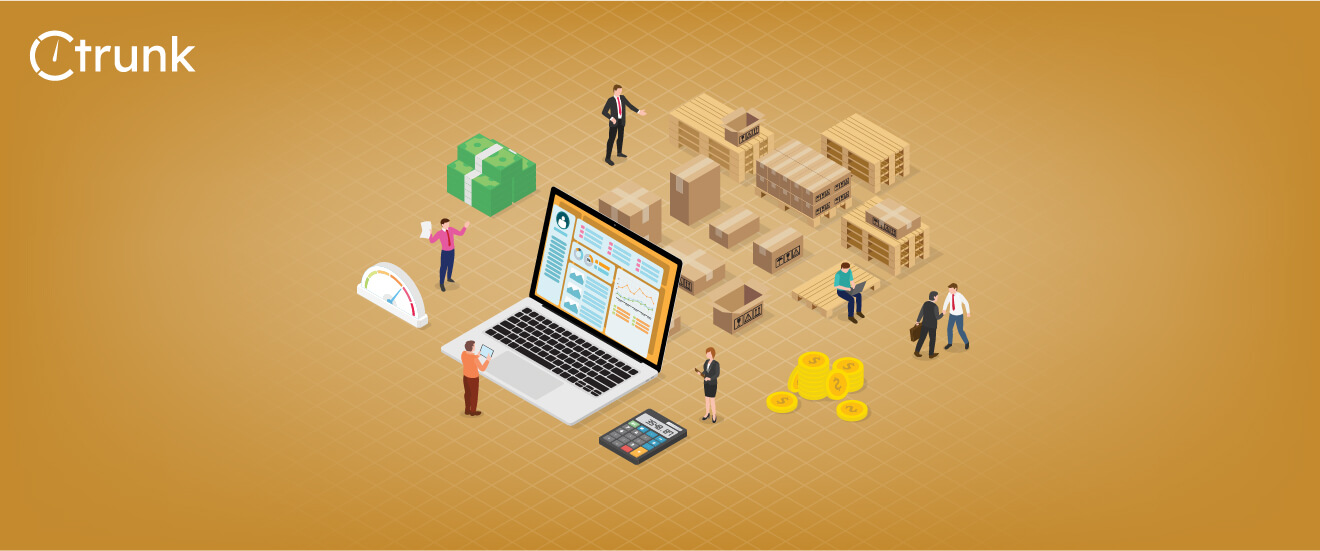Logistics Accounting: Best Practices To Follow

Logistics is the most important aspect for any business dealing in B2B (Business-to-Business) space. This is because the success of B2B brands is linked to their ability to effectively handle intricate supply chains and ensure the timely and flawless delivery of products and services.
But, you know, it’s not easy. Think about putting together a jigsaw puzzle with pieces that keep changing shape. Shipping things from one place to another is something similar to that.
That being said, let’s dive deeper into what B2B logistics really means:
So, when we say B2B logistics, we’re talking about moving stuff – like goods and services – between different businesses and not from a business to a customer. Moving goods from a business to a single consumer comes under the category of B2C (Business-to-Consumer) but more on that later. Read our blog B2B and B2C Logistics to see characteristics, differences and importance of both.
To make this whole thing work like a well-oiled machine, you need to understand all the moving parts. It’s like learning to dance with all the different partners at the same time.
Making business to business logistics happen is like planning a big party where you gotta be ready for anything. Imagine predicting what might go wrong and fixing it before it happens. It’s like being a fortune teller for business, so they don’t mess up.
Let’s talk about the challenges faced in B2B logistics.
Now, let’s talk about the tough parts of B2B logistics. Here are the things that can mess things up:
Imagine having to keep track of orders from a bunch of different people all over the place. It’s like juggling a bunch of deliveries, like those circus performers spinning plates on sticks. It can get pretty messy!
Customers want to know where their parcels are and when they are coming. But sometimes, it’s like waiting for a message from a friend who’s always late – you’re left in the dark.
Delivering freight can be expensive, especially when gas prices and vehicle maintenance costs keep going up. It’s like trying to juggle expenses without dropping the ball.
When you’re sending parcels to other companies, you don’t want to leave them waiting. But sometimes, businesses wish they could get a bit more help along the way. On the flip side, awesome customer support can lead to more repeat business and a shiny reputation.
Okay, so how do you tackle these challenges? Here’s a roadmap to success in business to business logistics:
Optimizing inventory management is one of the most important things that you can do. Balancing supply and demand through accurate forecasting will help prevent overstocking or stockouts which in turn reduces carrying costs and improves order fulfilment.
Leverage technological solutions such as Internet of Things – IoT in logistics devices, RFID tagging, and AI-driven analytics. This will empower your businesses to gain real-time insights into your supply chain processes resulting in better decision-making and improving overall efficiency.
JIT practices minimize inventory holding costs by ensuring that materials and products arrive precisely when needed. This lean approach reduces waste and enhances responsiveness to market fluctuations.
Building strong relationships with partners, suppliers, and distributors can help create a collaborative network that can respond swiftly to changing market conditions that can enable smoother logistics operations.
Unforeseen circumstances can make the supply chain to fail completely. You need to have strong risk mitigation strategies and contingency plans in place to make sure your business can adapt to unexpected challenges without severe operational interruptions.
Developing strong relationships with suppliers is very important. Crystal clear and open communication comes in real handy in terms of logistics. Mutual goals, and transparent performance evaluation also contribute to seamless B2B logistics.
Data is the new oil. And thus, data analytics can provide invaluable insights into supply chain trends enabling data-driven decisions that optimize routes, reduce lead times, and enhance overall logistics efficiency.
Efficient last-mile delivery ensures products reach their destination promptly, enhancing customer satisfaction and loyalty.
Tailor-made logistics solutions can only make your delivery journey climb uphill. It not only meets the unique needs of different B2B clients but also enhances satisfaction and strengthens long-term partnerships.
Managing B2B logistics isn’t a walk in the park – it takes careful logistics planning and smart execution. But when companies get the hang of it, they can enjoy the perks of speedy delivery and be ready to tackle any twists and turns that come with global trade.